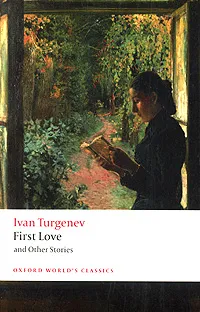First Love and Other Stories
Автор: Иван Тургенев
2008
Переплёт: Мягкая обложка, 304 страницы
ISBN: 9780199540402
Авторский сборник
📖 Psychologically acute, subtly and sometimes bitterly comic, these six stories all display the elegance and ironic clarity of Turgenev's finest writing.
Ivan Turgenev, perhaps best known for his novel Fathers and Sons, was a master at expanding the significance of a single episode into a story that illustrates a whole life, a whole relationship, even an entire age.
These stories demonstrate the evolution of Turgenev's skills and preoccupations, from the diary form of his famous study of a "superfluous man" (1850) and his exposure of the tyranny of serfdom in the small masterpiece "Mumu" (1854), to his two most poignant and nostalgic evocations of love, "Asya" (1858) and "First Love" (1860).
In "King Lear of the Steppes" (1870), the longest of the stories, the dominant sentiment is ingratitude as Harlov deals with his two icy daughters and plots his doomed revenge; his failure is, if anything, more devastating than that of Shakespeare's Lear.
Ivan Turgenev, perhaps best known for his novel Fathers and Sons, was a master at expanding the significance of a single episode into a story that illustrates a whole life, a whole relationship, even an entire age.
These stories demonstrate the evolution of Turgenev's skills and preoccupations, from the diary form of his famous study of a "superfluous man" (1850) and his exposure of the tyranny of serfdom in the small masterpiece "Mumu" (1854), to his two most poignant and nostalgic evocations of love, "Asya" (1858) and "First Love" (1860).
In "King Lear of the Steppes" (1870), the longest of the stories, the dominant sentiment is ingratitude as Harlov deals with his two icy daughters and plots his doomed revenge; his failure is, if anything, more devastating than that of Shakespeare's Lear.
Мнения

